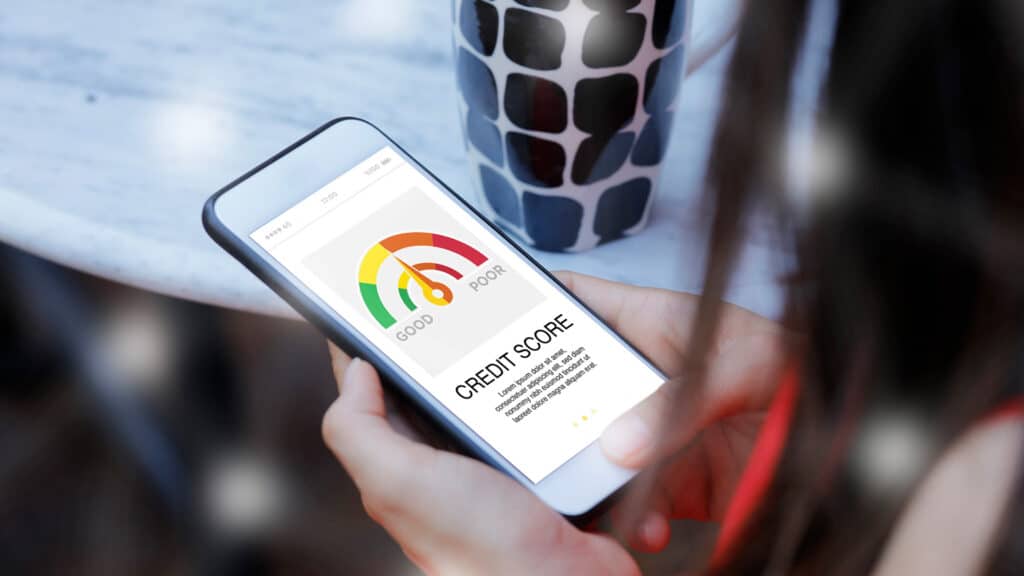Most products on this page are from partners who may compensate us. This may influence which products we write about and where and how they appear on the page. However, opinions expressed here are the author's alone, not those of any bank, credit card issuer, airline or hotel chain. This page may include information about American Express products currently unavailable on Slickdeals. American Express is not a partner of Slickdeals.
Personal loans offer borrowers a lump sum of money for virtually any personal use, ranging from home improvements to credit card debt consolidation. You pay these fixed-rate loans back according for a certain number of years, typically between two to seven years. Most personal loans are also unsecured loans, which means they are usually offered without collateral, so you aren't risking any assets.
Personal loan lenders can be banks, credit unions, or online lenders. But with an increasing amount of options, borrowers are having to shop around and compare more choices than in the past. We'll break down the various options for getting a personal loan and the pros and cons of each.
Where Can I Apply for a Personal Loan?
In addition to traditional lending institutions such as banks and credit unions, the lending industry has grown to include online lending for convenience. Over a recent four-year period, online lending grew from 22% to almost 50% of the personal loan market. If you're applying for a personal loan, here are your options.
- Banks: Banks tend to have higher interest rates, but existing customers may receive lower annual percentage rates and a more personalized experience during the loan process.
- Online Lenders: Although online lenders lack the personalized experience of banks, they can offer a quick and easy application process where approval and funding can be completed within a couple of days.
- Credit Unions: Credit unions offer competitive rates and may be more lenient with credit score requirements, but you may need to be a member to access loan products.

1. Banks
Brick-and-mortar banks tend to be the strictest of lenders when qualifying applicants, but they come with some advantages. You’ll have your choice of well-established big national banks or other options such as local community banks or other regional banks near you.
Local community banks may offer better rates than the larger national banks, and their local expertise will likely be better, as well. However, they may not provide the wide range of lending products offered by the larger banks.
Pros
- Personal service
- Benefits for existing customers
- Convenient as a one-stop shop
Cons
- Higher rates than online lenders
- Stricter requirements
- Fees and restrictions
Pros:
- Personal service: When you visit a bank for a loan, you can meet a loan officer in person, ask questions, explore options and build a relationship. Being able to get face-to-face interactions can also come with personalized solutions and advice that an online experience can’t provide.
- Benefits for existing customers: If you are an account holder and have history with a bank, they may offer deals and incentives that newer customers cannot access, including discounted rates or fees. They may even be willing to work with borrowers who have limited credit history if you’ve been a good customer.
- Convenient as a one-stop shop: Most brick-and-mortar banks offer more than just personal loans, so having all of your accounts with one financial institution can make things more efficient to manage. Not to mention, it can be beneficial when building a relationship with a bank.
Cons:
- Higher rates than online lenders: Since banks have higher operating costs and provide more personalized services, they tend to charge higher rates than online-only lending institutions.
- Stricter requirements: Banks typically require a higher credit score for pre-approval than other lending institutions. Plus, you’ll likely need to be an account holder at the bank.
- Fees and restrictions: Some banks don’t offer personal loans, and others may charge significant origination fees.
2. Online Lenders
Online lenders are generally considered the fastest way to get a personal loan. Interested borrowers can go through a quick pre-qualification process online and see their borrow limits, rates, and repayment timeframe in minutes.
Online lenders tend to target specific borrowers with specific products. For example, some online lenders focus on borrowers with good credit scores and are able to provide low-interest loans. On the other hand, other online lenders may focus on borrowers with poor credit scores who can’t qualify elsewhere, but will usually carry higher interest rates.
Pros
- Easy pre-qualification
- Convenience
- Quick process and funding
- Unique qualifying factors
Cons
- Interest rates vary widely
- Impersonal service
Pros:
- Easy pre-qualification: Online lenders make it easy to see if you can pre-qualify by doing a soft credit check, which can be done through a quick online form.
- Convenience: You can apply from the comfort of your home or office without making an appointment.
- Quick process and funding: The entire process is generally quicker compared to traditional lenders. Some borrowers can submit their application, get approval, and receive funding all within a matter of days.
- Unique qualifying factors: Some online lenders may consider qualifying factors outside what traditional lenders consider, such as your job history, education, etc. This can make it easier to receive final approval.
Cons:
- Interest rates vary widely: Those with strong credit may be able to secure low rates, but those with poor to fair credit scores may only have access to high rates. The rates will vary widely by lender, so you’ll need to do your research.
- Impersonal service: Unlike the personal service you receive at a brick-and-mortar bank or credit union, online services can be impersonal. If you have questions or need to explore options for managing your finances, online lending may come up short.
3. Credit Unions
Credit unions, or savings and loan associations, are financial institutions mutually owned by their customers. Those with existing accounts at a credit union or association may find it beneficial to leverage the existing relationship for personal loans. Credit unions have criteria for membership, but if you meet the requirements and open an account, you may pre-qualify for a personal loan. Large credit unions include Alliant and Navy Federal, although there might also be local ones specific to your region.
Pros
- Competitive rates and lower fees
- Less stringent qualification
Cons
- Membership is usually required
- Restrictions
Pros:
- Competitive rates and lower fees: Because credit unions are nonprofit, member-owned financial institutions, they may be able to offer better rates and potentially even waive fees.
- Less stringent qualification: Credit unions may offer personal loans to members with lower credit scores who would otherwise not be able to qualify at other lending institutions.
Cons:
- Membership is usually required: Loan products are typically not available to non-members. You must meet the membership criteria and open an account.
- Restrictions: Some credit unions may require you to be a member for a minimum amount of time and maintain a minimum account balance before qualifying.
Credit unions are a good overall option for those who have a membership and need a personal loan.
 Related Article
Related Article
Top Banks for Personal Loans in 2026
How to Choose a Personal Loan Lender

There are several tips to keep in mind when shopping for a loan. With so much competition in the industry, it's important to fully research your options before committing to a personal loan. When choosing a lender, here are some things to keep in mind:
- Check your credit score. Knowing your credit score beforehand might help you immediately narrow down the options and focus your search.
- Compare the annual percentage rate (APR). The APR includes both the interest rates and any applicable fees, which means it gives you the actual cost of the loan. Shop around for different personal loan rates and compare APRs to find the lowest-cost loan for you.
- Know the fees. Personal loans come with origination fees, and some may even charge a prepayment penalty if you pay off the loan early. Verify what the fees are for other penalties or late fees. Be familiar with all the fees listed in the fine print.
- Consider the loan repayment term. The loan's term length will directly impact your monthly payments. Longer terms mean lower payments but higher total interest. Shorter terms might mean higher monthly payments but less total interest.
- Compare products and features. Depending on the purpose of a personal loan, some options and features might maximize the benefits of the product you choose. For example, if your loan is for debt consolidation, ask if the lender will deal directly with the creditor(s), making it less stressful for you. Find out if they offer features such as a grace period for payments and loan deferment in case of an emergency.
- Get pre-qualified. Loan providers can do a “soft” credit check without impacting your credit score and let you know if you can pre-qualify or not. This will also help you to narrow down your options.
- Do your homework. You can first rule out any loan institution not registered in your state. The FTC requires lenders to do this for every state where they do business. Explore each lender’s minimum and maximum lending amounts to ensure they offer a product that fits your needs.
Expect to shop around and research the loan products you qualify for before deciding on a lender. This way, you'll be confident in making the right choices for your financial needs.
Thoroughly Research Your Options
Personal loans offer flexible funding that can be used for a variety of reasons. In today's economic climate, it's critical to only apply for credit when necessary and do so responsibly. There’s no single right answer when choosing a personal loan lender, so do your homework and carefully choose the option that is best for you.
FAQs
-
Yes, most online lenders are safe to use and conform to the standards in a highly regulated industry when it comes to privacy, advertising, and legal compliance. Still, you should be cautious when providing any personal information online and only stick with trusted lenders.
-
Yes, you can have multiple personal loans at the same time and often even with the same institution. There are no official rules prohibiting a borrower from having multiple active personal loans. It is rather a question of whether the borrower qualifies or not, and whether the borrower can afford to repay these loans. Individual lenders may have restrictions, so you’ll need to talk to a loan agent for details.
-
In general, online lenders can have lower rates than brick-and-mortar banks. Online lenders have lower operating costs than traditional banks, so they have the ability to offer lower rates.
-
The average APR range on personal loans is between 10% to 28%, depending on the borrower’s financial situation as determined by factors such as income, existing debt, and credit history. So any loan with interest rates that are lower than the average for your credit background can be considered “good.”
-
Personal loans can be used for nearly any type of personal expense, such as medical expenses, home improvements, weddings, funerals, vacations, debt management, and so forth. However, one of the few things that lenders prohibit using a personal loan for is to make a down payment on a home.









